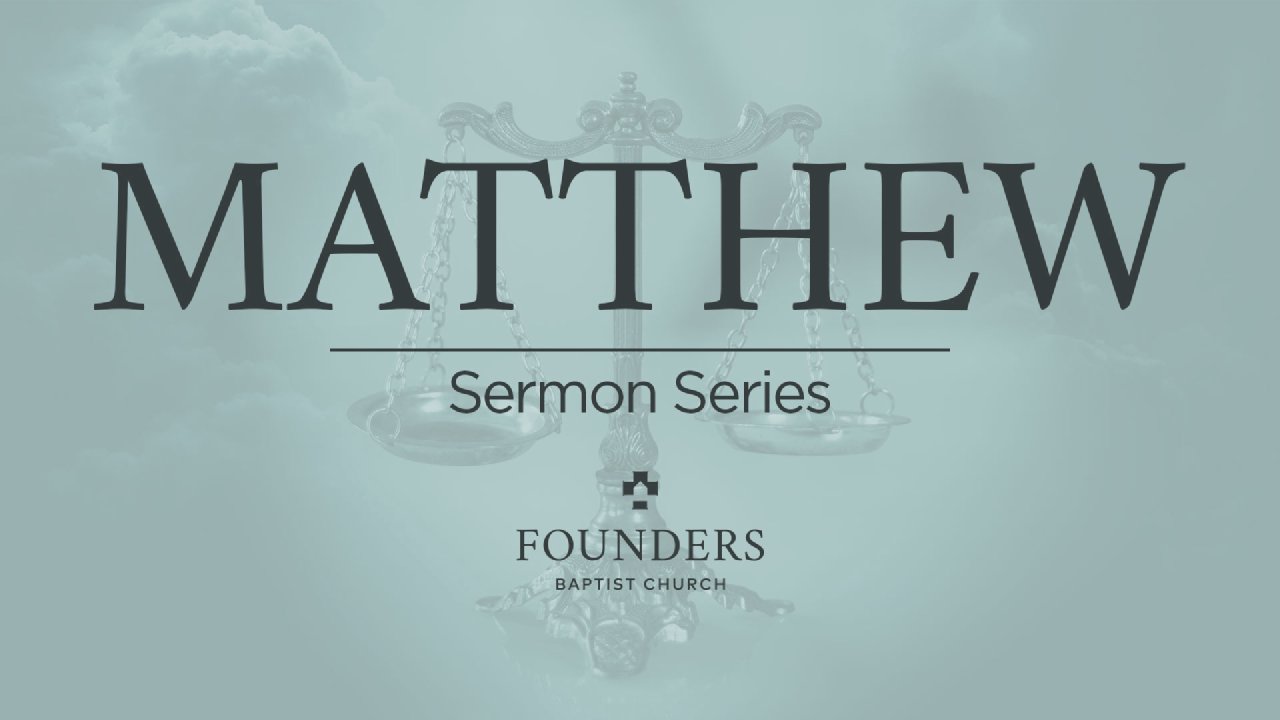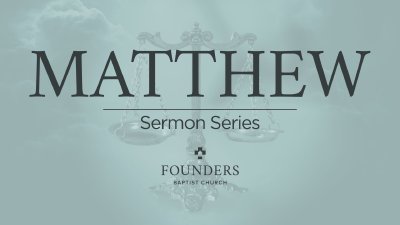Introduction:
The cross of Christ is glorious to the believer. We boast in our Savior and in His death for us, so that an emblem of shame is for us THE EMBLEM OF GLORY.
The message of Christ crucified and raised from the dead is what we have believed to the saving of our souls, and it is what we proclaim for the salvation of other souls.
And at that cross we see God’s testimony to Jesus.
We have seen Scripture fulfilled in ways that magnify the providence of God. God’s accomplishment of extraordinary things through ordinary means.
Now we are witnessing God’s supernatural testimony to His Son at the cross.
Last Sunday we began looking at 5 ways that the Father testified to His Son’s person and work at the cross.
I. A SUPERNATURAL TESTIMONY OF JUDGMENT (vs.46-49)
We considered the supernatural darkness that was on display. For three hours Jesus suffered while the sun was darkened. We noted the many places in the OT where darkness is used by God to speak of His judgment against sin and sinners.
We noted that the primary message of judgment on display in THIS darkness, was God’s judgment upon our sins in the body of His Son.
Christ, the righteous one — the just one — was suffering in the stead of the unrighteous ones, so that we would be made righteous in Him.
NAS 1 Peter 3:18 For Christ also died for sins once for all, the just for the unjust, in order that He might bring us to God, having been put to death in the flesh, but made alive in the spirit;
ESV 2 Corinthians 5:21 For our sake he made him to be sin who knew no sin, so that in him we might become the righteousness of God.
This message of judgment was on display in two ways — by CREATION and by CHRIST’S CRY.
Our Lord cried out Psalm 22:1, and as a result we recognize that He suffered God’s wrath upon Himself to rescue us from that wrath.
One thing we are told about that cry is that some who were listening responded to it.
Some thought that He was calling for Elijah, or at least MOCKED Him with the idea that He was calling for Elijah.
According to some scholars, there was a legend that because Elijah had been transported into heaven while still alive, he would return to offer help when needed for the righteous.
D.A. Carson — “According to 2 Kings 2:1–12, Elijah did not die but was taken alive to heaven in a whirlwind. Some Jewish tradition, perhaps as old as the first century, held that he would come and rescue the righteous in their distress (cf. TDNT, 2:930–31; Str-B, 4:769–71).”[1]
Did they sincerely confuse what Jesus was saying, or were they mocking Him as they had earlier when they said that perhaps God would remove Him from the cross?
I don’t think we can be certain.
Matthew tells us that they offered Jesus “sour wine.”
Sour wine was wine vinegar diluted with water. It was cheap and was the drink of laborers and soldiers.
QUESTION: WHAT IS THE SIGNIFICANCE OF MATTHEW INCLUDING THIS?
Again, this brings Psalm 69:21 to mind.
Psa 69:21 They also gave me gall for my food, And for my thirst they gave me vinegar to drink.
Remember they had offered Him sour wine (vinegar wine) to drink earlier, but they put myrrh in it (Matthew called it gall to describe its taste). The myrrh made it undrinkable. It was AN ACT OF MOCKERY. They knew Jesus wouldn’t drink it. Jesus was willing to take it the first time, until He tasted it, then He refused it.
Now they offer Him the wine, apparently without the myrrh, and Jesus took it from the sponge.
II. A SUPERNATURAL TESTIMONY OF AUTHORITY (vs.50)
After taking that drink to His mouth, Jesus dies.
WHAT MATTHEW DOESN’T TELL US, BUT JOHN DOES, IS THAT JESUS SAID HE WAS THIRSTY.
HE SAID THIS KNOWING THAT EVERYTHING HAD BEEN ACCOMPLISHED.
The three hours of darkness had come to an end.
The Son of God had absorbed the wrath of God up to the point of His death.
And John tells us that Jesus was conscious of this, and that He asked for something to drink to fulfill the Scripture.
ESV John 19:28 After this, Jesus, knowing that all was now finished, said (to fulfill the Scripture), "I thirst." 29 A jar full of sour wine stood there, so they put a sponge full of the sour wine on a hyssop branch and held it to his mouth. 30 When Jesus had received the sour wine, he said, "It is finished," and he bowed his head and gave up his spirit.
THIS IS A DEATH UNLIKE ANY OTHER IN HUMAN HISTORY.
ESV John 10:17 For this reason the Father loves me, because I lay down my life that I may take it up again. 18 No one takes it from me, but I lay it down of my own accord. I have authority to lay it down, and I have authority to take it up again. This charge I have received from my Father."
When Jesus was conscious of having FINISHED His work on the cross, Matthew says that He CRIED OUT again, with a loud voice, and then “yielded up His spirit.”
Whatever the sense of abandonment was, indicated by His cry, the Son continued in His love for His Father, and in His confidence in His Father.
HIS FATHER WAS STILL HIS GOD, EVEN IN HIS CRY OF DERELICTION.
And now, when He has reached the end, He cries out and YIELDS His spirit.
HE “DISMISSES” HIS SPIRIT.
JESUS CHOOSES DEPARTURE.
The suffering of Christ was real, and it was horrific, but He did not die the usual death of a crucifixion victim.
[1] D. A. Carson, “Matthew,” in The Expositor’s Bible Commentary: Matthew–Mark (Revised Edition), ed. Tremper Longman III and David E. Garland, vol. 9 (Grand Rapids, MI: Zondervan, 2010), 648.





